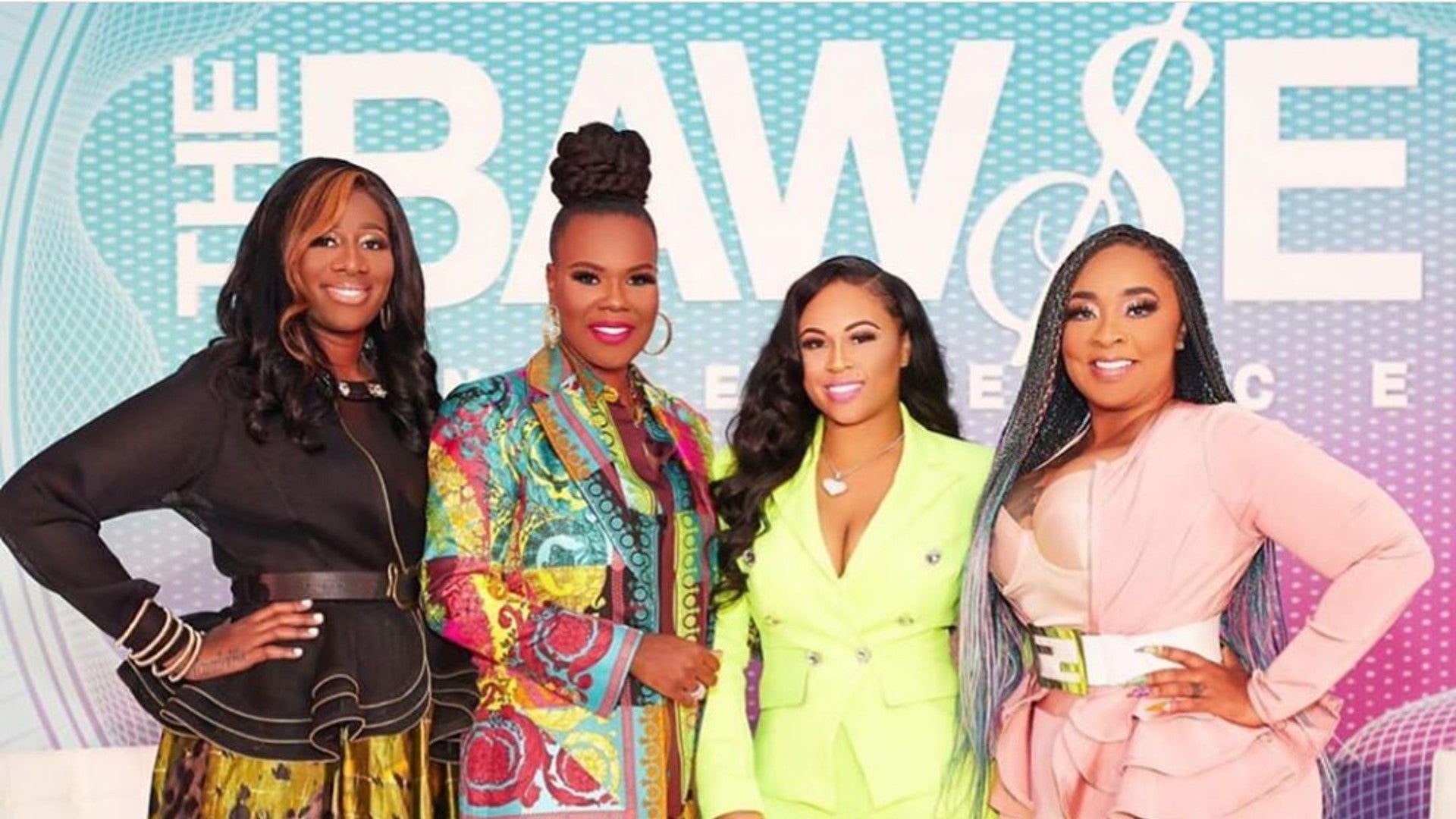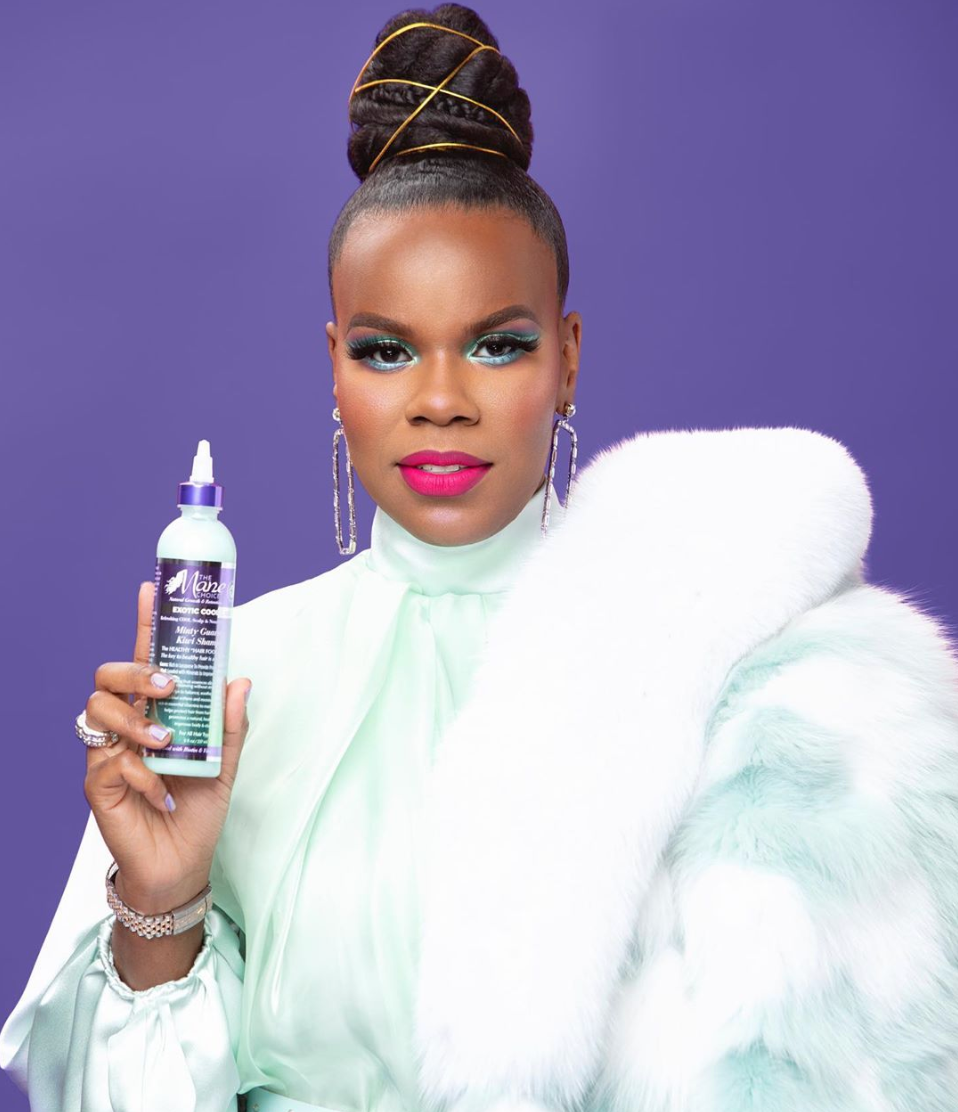
You can’t challenge a group of Black women to a good time and not expect the most fun to be had. In that same vein you can’t challenge that group of Black women to come together in the name of elevating themselves in business, the arts, and the like, and not expect greatness. Looking around a ballroom at the Loews Hotel Miami Beach this weekend you could easily see how beautiful and enterprising Black women are. You were also reminded of a beautiful and inevitable truth: Black women are going to take over the world.
That’s exactly what Courtney Adeleye had in mind when she started The Bawse Conference in 2018. This weekend was the second year, and further proof that this is a movement that’s only growing, and for the better. Though most of the experts and speakers were from the beauty industry, attendees came from all over the country in a variety of sectors including education, health services, wellness, and retail.
“I came to the conference to learn about more ways I can grow my business. I’m interested in learning more about marketing and sources of business funding,” said Sankan Nyanseor from Atlanta, GA. She owns a boutique called The Shoe Slay, which specializes in fashionable and affordable shoes for women in need of sizes ten and up. “There’s so much valuable information. The conference is very inspirational and uplifting, not to mention I get the chance to meet a lot of incredible women.”
As a scrappy self-starter, Adeleye understands what it is to launch a business with little capital (she started her hair care brand The Mane Choice with $500 and a prayer), no mentors, and a lot of lessons learned the hard way. So the conference offers aspiring and existing businesswomen the opportunity to learn from the best in order to take their companies to the next level. And it was clear over the duration of the weekend that a lot of that valuable information included social media, and its importance.

In a panel about bootstrapping your business, beauty moguls stressed how social media plays a large role in the success of a business, whether your business is in cosmetics, hair care, or anything else.
“With social media I learned a different way to market. When I first started doing what I was doing everybody was against it because it was the barter system and nobody was doing that back then,” explained Jesseca Dupart, CEO of Kaleidoscope Hair. “But I knew on my end in exchange for promotion I got the exposure that was far beyond anything that person could have paid me.”
Dupart, who is known on social media as Miss Judy, had formed an unlikely friendship with social media savvy fellow panelist Wuzzam Supa, widely known as, Supa Cent, the millionaire mogul behind fast growing makeup brand The Crayon Case. Their friendship formed when Dupart offered to style Supa’s hair so that she looked more put together in her social videos.
“She was on social media doing story time and I said ‘[there’s] no way she walked in like that and she just got her hair done the day before. She didn’t know how to keep it up. I said ‘girl I’m on my way over there, you can’t be on there looking like that and you got your hair done yesterday,'” she joked. “The more I saw her the more she posted me and it was an awesome build-up of a relationship. I remember in the beginning of friendship I was like ‘girl we’re so different I’m scared.’”
“But you know it worked out great because I knew business and she knew social media, so with us hanging with each other it was like an exchange of information. If it wouldn’t have been for me asking questions, her asking questions, honestly I don’t feel like we would be as far as we are because we do rub off on each other a lot.”
And that was just their journey. For Supa Cent, social media has served her largely in her business. She went from selling t-shirts and headphones and pretty much anything that a consumer could need, to formulating her own cosmetics that sell out within minutes. She’s posted her earnings when she made only $14K annually, and years when she’s made $70K.
She tapped into a key point of sales 101 without even knowing it: people don’t buy products, people buy people. The more someone knows, likes, and trusts you, the more they’re inclined to buy from you and invest in you. Social media allows brands to build a community around an actual person in order to gain that trust. Supa’s openness about her life, from giving birth to her baby girl to recently being hospitalized and diagnosed with epilepsy, has made her followers feel closer to her and it has translated to sales.
“I was just being myself. I started on social media right after the storm,” she said, referring to Katrina. “It was Black Planet first, then it was MySpace, then Facebook. I was just being myself and I think people just related to me. I was talking about things they went through too so they were able to connect with me. And I engage with my followers all day.”
It’s part of her appeal. With 1.7 million followers, it’s an easy and free way to advertise new product drops, and take a temperature on how well new items will do once they do launch. Experts Kristi Jackson and Alcyone “Cici” Gunn (The Six Figure Chick), who led sessions over the weekend on strategic marketing and how to make money on Instagram, agree.
Both women relayed the importance of engaging with your followers every day in different ways, including responding to comments, responding to direct messages, posting stories, and posting to Instagram Live—something most women at the conference admitted to shying away from.
“If you’re not going live you should,” said Gunn to a room of eager entrepreneurs. “If you need to go live from your bathroom do that. If you need to go live from your car, do it. Because going live will change your business.”
And for all the businesswomen who just “don’t like to do it” and therefore wonder if they really need to engage in social media to help their business grow, Adeleye kept it clear and simple.
“Everything changes. Not too many people in here got Jheri curls anymore. So you can say ‘I still want to rock my Jheri curl,’ and you can, but everybody else won’t be doing that. So if you’re selling something, you’ll have to start doing what everybody else is doing if it’s [proven] to be working,” she said. “That’s almost like saying ‘do I have to have a website?’ If you don’t have a website I’m not doing business with you. You don’t have to, but good luck!”